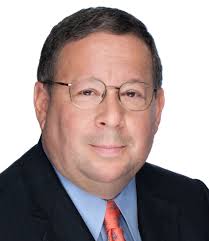Making the Case To Regulators
The smarter way to stay on top of the multichannel video marketplace. Sign up below.
You are now subscribed
Your newsletter sign-up was successful

WASHINGTON — Comcast executive vice president David Cohen has said his company’s deal to acquire Time Warner Cable is "pro-consumer, pro-competitive, strongly in the public interest and approvable."
But Comcast, the No. 1 U.S. cable operator, will have to establish the first three of those points to the satisfaction of both the Federal Communications Commission and either the Department of Justice or the Federal Trade Commission to gain the approval to swallow TWC, the second-largest MSO. It’s a process likely to take as long as a year.
The deal faces harsh critics in the public advocacy space and with a Democratic administration that did not win re-election on a pro media-consolidation platform.
But back in 2010, when Comcast sought approval to acquire media colossus NBCUniversal from General Electric, Cohen and company helped write a happy ending for the Philadelphia-based MSO, in part thanks to a host of voluntary deal conditions. Comcast hopes to leverage deal conditions to its advantage in this merger as well.
Cohen said he welcomed a full and fair vetting of the deal and dismissed its harshest critics, who raised antitrust issues and spoke of rising prices, degraded service and the death of competition. Consider that Comcast and Time Warner Cable do not overlap, Cohen said, so the deal would not reduce competition in any relevant market. The deal “will not deprive a single consumer of a choice he or she has today,” Cohen said.
Asked about the company’s size — which could trouble regulators, even given Cohen’s antitrust argument — and ability to foreclose programming, Cohen said that might have been an argument 20 years ago, but that today, given the number of distribution options, the balance of power has tipped toward programmers.
But just to try to placate the doubters, Comcast will agree to divest 3 million subscribers, so it will be under the FCC’s defunct 30% cap on cable subscribers, even though the court has twice pulled the plug on that “third rail.”
The smarter way to stay on top of the multichannel video marketplace. Sign up below.
“The problem for regulators is clear," Craig Moffett, principal and senior analyst with researcher MoffettNathanson, said. "Programmers will claim that a merged Comcast/TWC would simply be too large to be allowed.”
One of Comcast’s biggest selling points appeared to be the NBCU conditions that would automatically carry over to TWC.
Comcast also committed to extending broadband deployment, boosting broadband speeds, and increasing programming diversity, all NBCU conditions and all issues near and dear to the hearts of FCC chairman Tom Wheeler and the Obama administration.
Congress will take a hard look, but it won’t be the ones making the call. In an interview with The New York Times two weeks ago, William Baer, who heads the antitrust division of the Department of Justice, said it would be hard to make a case that reducing the number of cable companies would benefit consumers or improve competition.
Wheeler recently pulled the plug on an item that would have allowed more local broadcasters — radio and TV — to combine, suggesting to a town hall audience of consolidation critics that he had arrived in time to stem further consolidation.
FTC chairwoman Edith Ramirez has said that one of the agency’s "principal responsibilities" is blocking mergers that "may substantially lessen competition."
But don’t bet against Cohen.
“All we’re interested in is a full and fair hearing,” Cohen said. “I think if we get that opportunity, we will be able to convince both the FCC and the relevant antitrust agency that this is an eminently approvable transaction.”
Conditioned Response
WASHINGTON — Comcast will have 30 days to submit its public-interest statement, essentially its pitch to the FCC for why its merger with Time Warner Cable is pro-competitive and pro-consumer. It will feature a litany of advertised "protections and benefits" that accrue from the seven-year conditions on the 2011 NBCUniversal deal.
Here are some of the key NBCU conditions Comcast pointed out would be automatically extended to TWC, which means they would be effective until at least 2018:
• The FCC's network-neutrality rules would extend to millions more broadband customers in TWC’s footprint.
• Broadcast stations in TWC markets would be granted greater protections in their retransmission- consent negotiations.
• PEG channels would be protected from migration to digital in TWC systems not yet alldigital and from material degradation.
• The former TWC systems will have to offer and market "affordable" stand-alone broadband.
• The "modest" TWC programming network holdings would be subject to the Comcast/ NBCUniversal program-access conditions, which means TWC's regional sports networks would be subject to standalone arbitration. — John Eggerton
Contributing editor John Eggerton has been an editor and/or writer on media regulation, legislation and policy for over four decades, including covering the FCC, FTC, Congress, the major media trade associations, and the federal courts. In addition to Multichannel News and Broadcasting + Cable, his work has appeared in Radio World, TV Technology, TV Fax, This Week in Consumer Electronics, Variety and the Encyclopedia Britannica.

